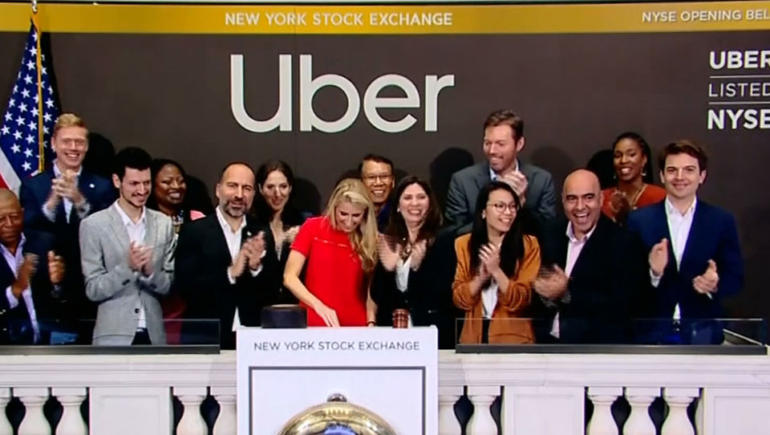The world of finance expected 2019 to be a big year for initial public offerings (IPOs) in the United States. But technology companies, like Uber and Lyft, failed to impress and other companies have shelved their plans to go public.
CGTN’s Nick Harper reports.
Uber for example listed on the New York Stock Exchange in May but since then, its share price has fallen more than 20%. The other U.S. ride-hailing IPO of 2019, Lyft, has seen its share price reverse in value by around 45%.
“I think a lot of people who were drawn to the space without enormous sophistication and depth said ‘hey, this is a great place, you hang out here and you get rich’,” says Managing Director at Multivariate, Max Wolff.
“You stand right here and the bride will throw you the bouquet, and you got hit with a bowling ball three times in the face and now you’re not sure if it’s the greatest place on earth to stand.”
Analysts say part of the problem has been the volatility of global markets, which have been unsettled by the U.S.-China trade dispute. Additionally, some of the companies going public achieved enormous valuations. Uber reached nearly $76 billion valuation. But investors were skeptical about its potential profitability, considering it had never made a profit, leading to selling off of stock.
That skepticism also hurt other companies. Office-sharing firm WeWork faced extra scrutiny of its financial filing information. The data worried investors, which in turn caused the company’s valuation to fall. WeWork has now suspended its public offering indefinitely.
Economists believe U.S. exchanges will remain popular. The New York Stock Exchange and the Nasdaq are highly prized internationally, for both prestige and money-raising potential. But analysts agree the U.S. IPO landscape will look very different in 2020.
“I believe that in the long run we could see some benefit for tech investing in general,” says New York University Professor Arun Sundararajan, the author of “The Sharing Economy.” “The amounts of capital infused into companies pre-IPO aren’t quite as enormous and the valuations stay realistic until the company is subjected to the rigorous of the public market.”
The problems in 2019 could also affect Airbnb’s hotly-anticipated listing, expected next year.
“People will be drawn back in and the folks who stay in the business and do the hard work to figure out which is the baby and which is the bathwater will be richly rewarded again,” says Wolff. “Because a bloated environment where people are gorging on risk, because there’s no return on low-risk assets, creates all kind of missignaling and distention, which however painful the adjustment we are decisively better off without.”
Companies aiming to go public will look back at 2019 and try and learn lessons for their own offerings. But risk-averse investors are likely to be the ones with the real power going forward, as they’ll get to decide how much they think these companies are actually worth.
 CGTN America
CGTN America
